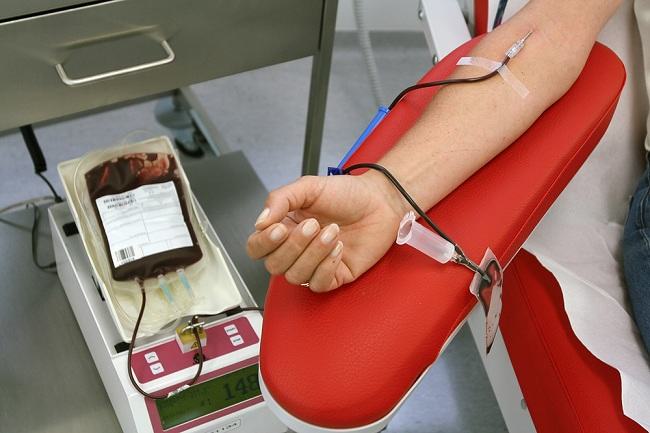Psoriasis arthritis is an inflammation of the joints that attacks psoriasis sufferers. Although most cases of psoriatic arthritis begin with psoriasis, psoriatic arthritis can also occur before psoriasis symptoms appear.
Psoriasis is a condition when skin cells build up too quickly and too quickly. While arthritis is inflammation in one or more joints of the body. In other words, psoriatic arthritis is a type of arthritis experienced by psoriasis sufferers.

Symptoms of Psoriasis Arthritis
Symptoms of psoriatic arthritis develop over the long term and may worsen over time. The severity of symptoms that appear in each patient is different. Some of the symptoms of psoriatic arthritis are:
- The joints are stiff and get worse in the morning.
- Swelling and joint pain.
The pain can be felt in the fingers, toes, soles of the feet, heels, buttocks, back, or neck. Symptoms can occur on one or both sides of the body, and can affect several joints at once. Symptoms can come and go, that is, get better for a moment and then get worse.
When to go to the doctor
In order to prevent psoriatic arthritis, psoriasis sufferers are advised to routinely seek treatment and check their condition with a doctor, at least once a year.
Psoriasis arthritis can cause severe joint damage if not treated immediately. Therefore, immediately consult a doctor if you suffer from psoriasis and experience symptoms of arthritis.
Causes and Risk Factors of Psoriasis Arthritis
Psoriasis arthritis occurs when the body's immune system attacks healthy body cells instead (an autoimmune disease), causing inflammation in the joints and overproduction of skin cells.
It is not known what triggers this condition, but this condition is thought to be related to heredity and environmental factors. Some of the factors that can increase the risk of psoriatic arthritis are:
- Suffering from psoriasis
- Viral infection or bacterial infection
- Between 30-50 years old
- Have a family suffering from psoriatic arthritis
Diagnosis of Psoriasis Arthritis
There is no specific test that can confirm psoriatic arthritis. However, your doctor may run some of the following tests to rule out other conditions, such as gout or rheumatoid arthritis, including:
- Imaging with X-rays or MRI.
- Test for antibodies and uric acid levels by taking a blood sample.
- Joint fluid examination.
Another examination that can be done is taking a sample (biopsy) of the skin, to confirm the occurrence of psoriasis, if it has never been detected with psoriasis.
Psoriasis Arthritis Treatment
Psoriasis arthritis treatment aims to overcome the inflammation that triggers pain and swelling in the joints, and prevent paralysis. Treatment methods used include:
Drugs
A number of drugs used to treat psoriatic arthritis are:
- Non-steroidal anti-inflammatory drugs (NSAIDs), such as ibuprofen and naproxen, to reduce pain and inflammation.
- Corticosteroids, such as methylprednisolone or dexamethasone, to reduce inflammation. Corticosteroids can be given by injection directly into the affected joint
- Immunosuppressive drugs, such as azathioprine and cyclosporine, to suppress the immune system's excessive response.
- TNF-blockersalpha, as infliximab, to reduce pain and swelling in the joints.
- Antirheumatic, such as methotrexate and sulfasalazine, to slow the progression of psoriatic arthritis and prevent permanent damage to
- Other drugs, such as ustekinumab and secukinumab, to relieve the symptoms of psoriatic arthritis.
Operation
In addition to drugs, doctors can also perform surgery, namely joint replacement surgery. In this surgery, the orthopedic doctor will replace the damaged joint with an artificial joint made of metal.
Please note, there is no specific treatment that can completely cure psoriatic arthritis. The above remedies only relieve symptoms and prevent the disease from getting worse.
Complications of Psoriasis Arthritis
People with psoriatic arthritis are more prone to the following diseases:
- Obesity.
- Depression.
- Fatty liver disease.
- Eye diseases, such as conjunctivitis and uveitis.
- Heart disease.
- Diabetes.
- Inflammation of the intestines.
- Osteoporosis.
- Metabolic syndrome
- Cancer, such as leukemia and lymphoma.
Prevention of Psoriasis Arthritis
Psoriasis arthritis can be prevented or alleviated symptoms by doing the following:
- Treatment for psoriasis, if suffering from the disease.
- Light exercise, such as walking, cycling, and swimming.
- Compress the swollen joint with an ice pack.









